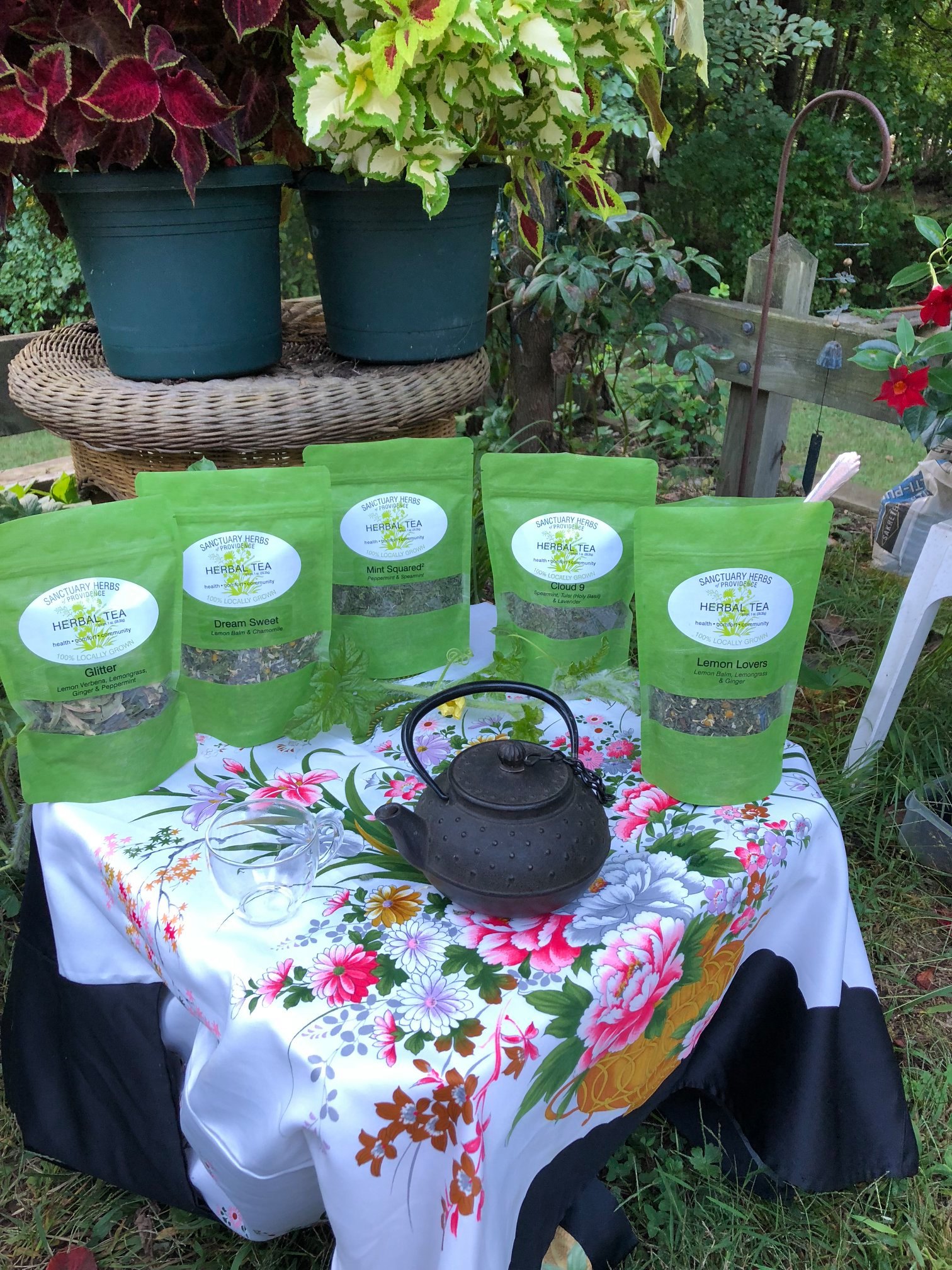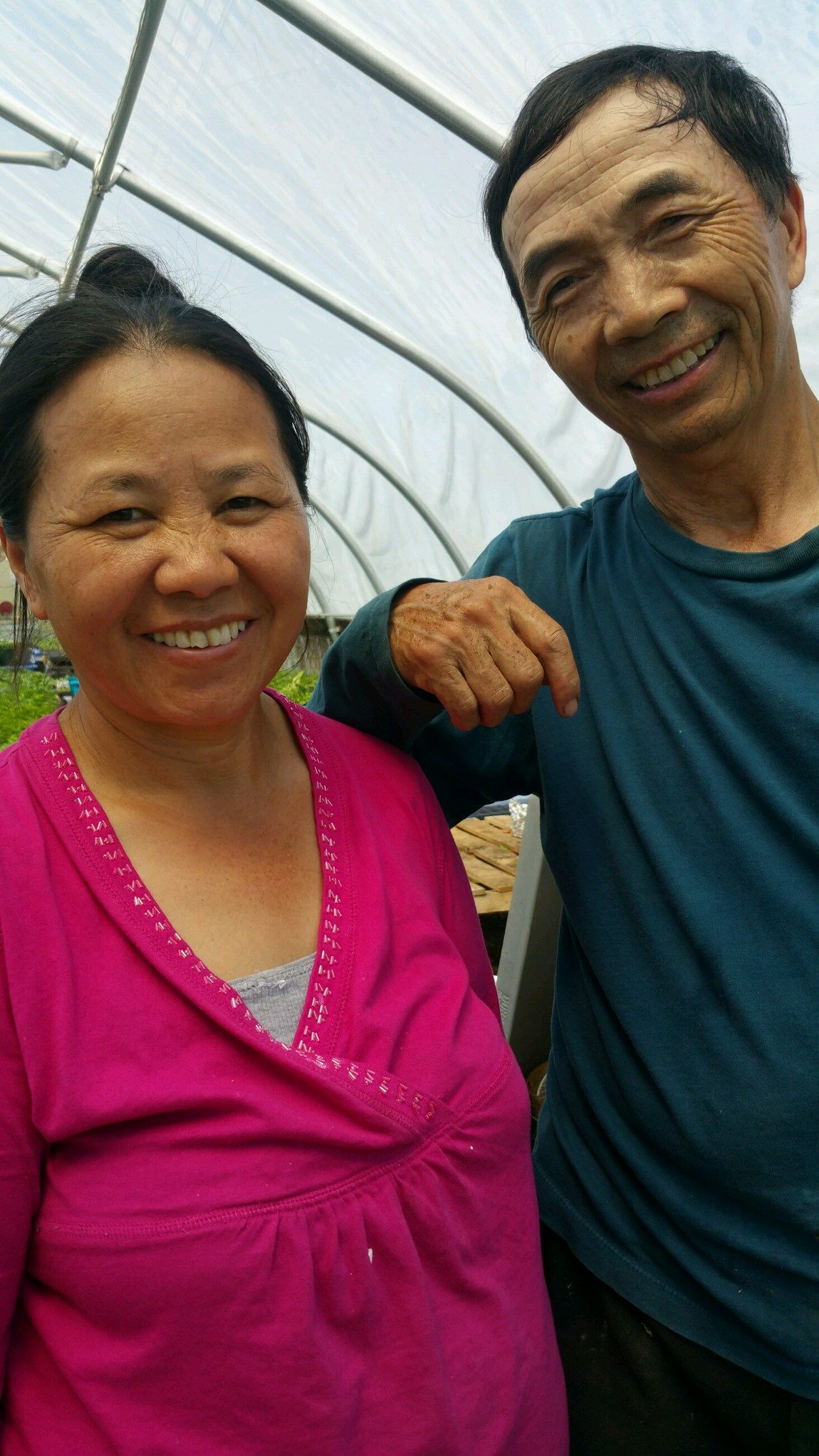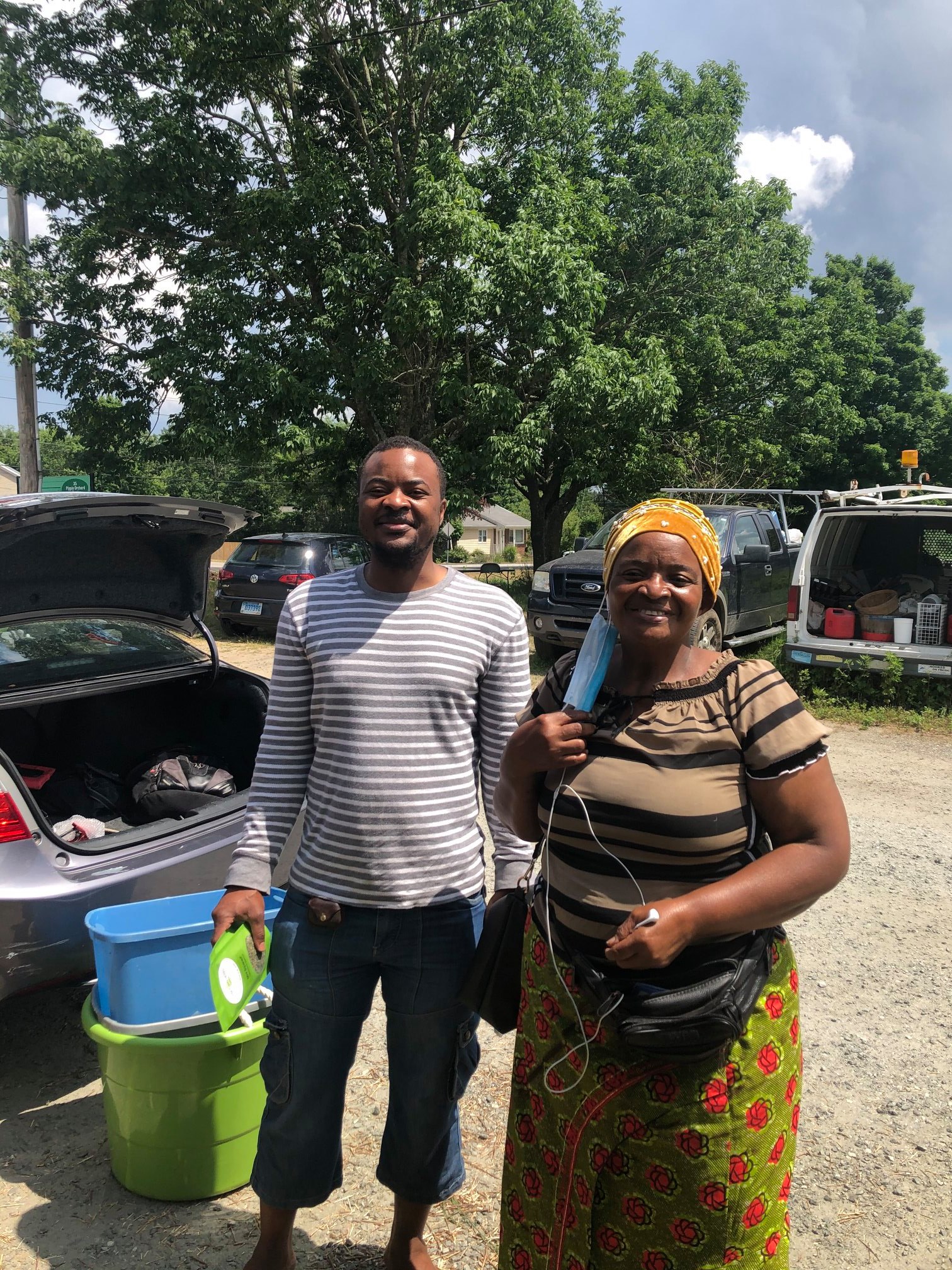
After the 2016 US presidential election, Christina Dedora, Eliza Sutton, and Katherine Brown—former co-workers at the Southside Community Land Trust in Providence, RI—were so deeply concerned by the anti-immigrant and refugee rhetoric surrounding the election, that they were moved to action. Inspired by their mutual work at the Southside Community Land Trust, which has helped people grow food for over 40 years in a mainly low-income, immigrant community, the women founded Sanctuary Herbs of Providence. The business is a great model of taking local action to live for and promote one’s values.

They first began by connecting with immigrant farmers they knew through Southside and started using the locally grown herbs to make various tea blends to sell at the farmers’ market. They’ve worked with nearly 20 farmers over the years, and about 8-10 at any one time. I first learned about their tea from NPR while driving 12 hours from Michigan to Vermont for a wedding in the summer of 2018. Their commitment to supporting immigrants and growing herbs chemical-free convinced me I had to try Sanctuary’s tea (my favorite blends are Glitter and Tongue Tingler).

Soil and human health are of utmost importance to Sanctuary Herbs. They encourage and teach their growers to follow regenerative practices like adding compost each year, no-till, chemical-free gardening, and using cover crops where possible. Most of the farmers grow on small plots (even as small as 1/8 of an acre), so ensuring the soil is healthy is crucial for the intensive growing required.
As time passes, they have recognized that customers seem to be less concerned about Sanctuary Herb’s social mission. Now, while they maintain their practice of supporting small, immigrant farmers, Sanctuary Herbs focuses its messaging more on the environment, as this has risen to the top of customers’ concerns. Christina shared that there was a learning curve involved. The bottom line is people want a good product that has a low carbon footprint and benefits their health.

As Sanctuary Herbs develops, they are looking to increase the number of farmers they work with and to create a larger, broader network. Eventually, they would like to add a brick and mortar store that would allow them to increase their drying room. They currently must transport 5000-7000 lbs. of herbs to a nearby city for drying. Having their own store would help to lower the carbon footprint of production.
Christina shared that farming is really physically demanding. “A lot of heartache and money can go out the door.” For example, one farm’s basil suffered a common mold, and they had to destroy the whole crop. Purchasing crops and products from your local, small-scale farm goes a long way to supporting the farmer and ensuring their continued livelihood, especially in times of crop failure or extreme weather.



